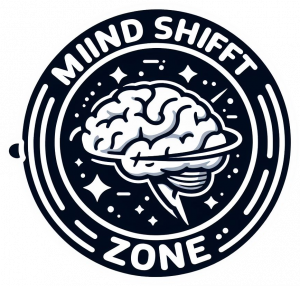When it comes to both work and life trajectories – there is one thing that is inevitable for everyone: Change. Changing jobs, or even career or changes to your personal situation. In fact, there are little improvements, innovations, or advancements that can be made without some kind of change. That is true on a personal level as well as a global level.
The world continues to advance at a mind-boggling speed. The changing face of work as we know it is an inevitable byproduct of that.
New technologies and thought processes create opportunities for automation and removal of tasks. The result of this is changes to our work and what’s required from us.
Change can affect your work situation personally or your industry as a whole. But to anticipate and meander through change in your career is necessary. It’s a way to ensure a path that is fulfilling, rewarding, and inspiring for you and those around you.
At any rung on the career ladder, seeking the guidance of a professional is always an option. Their sage advice can help propel you forward. Having a career coach to encourage you when changing jobs, overcoming certain obstacles or providing clarity to your work situation.
Changing jobs and career uncertainty in an ever-changing world
Career-related doubts are at an all-time high. Almost one in five Millennial females (born between 1980-1994) had yet to identify a career path. That figure is from on A survey by the financial institution Capital One. The same survey found that some 80% had taken a job that didn’t exactly match their career values. I’m sure many of us can recognise that from our first job. So why is it a problem? A study by Gallup unveiled that Millennial turnover costs the American government $30.5 billion annually. Also, changing jobs and disengagement with the traditional workforce is rife amongst the younger age group. The Deloitte Millennial Survey revealed that up to 43% of millennials envision changing jobs within the next two years.
This uncertainty is not just something plaguing millennials either. Hudson, a talent solutions company, were looking at Generation X workers. They found that Generation X workers (born between 1965 and 1979) were the least happy in their current roles. The study compared Generation X with other generations. Hudson reported that 47% of Generation X workers did not understand the career opportunities available to them. A further 20% were struggling to achieve some semblance of work/life balance. Most alarmingly maybe is a study on Generation X done by OC Tanner Europe. The study revealed that 32% of males and 28% of females admitted that their jobs were having a negative impact on their physical health.
When should you consider changing jobs?
Of course, it is normal to experience stress or apprehension to a certain extent in your professional life. So when do you seek professional advice? Generally, your work-related feelings and attitudes shouldn’t impact and interfere with your physical or mental health. If they do then it might be a good time to seek professional coaching advice and consider changing jobs.
Dr Kristen A. Tolbert is a psychologist and the founder of Career CoLabs counselling and consulting firm. According to her manifesting physical symptoms of work, stress should not be ignored. When stress starts manifesting in symptoms such as headaches or stomach ache that’s common warning signs. It might mean that your work may be impacting your quality of life. She also mentions emotional symptoms like depression, anxiety, anger, and trauma. These are common warning signs that signal your work may be impacting your quality of life.
Dr Tara Trout is the founder of Skyline Psychological Services. They specialise in working with professionals and athletes, encouraging them to improve leadership and manage stress. Dr Trout wholeheartedly agrees that you must listen to what your instincts are telling you.
“If you are dreading going to the office or interacting with your peers and superiors daily, this is a huge red flag,” Dr Trout adds. “If you find yourself constantly making excuses to get out of work, putting in poor effort, faking illness, or feeling an impending sense of doom, it is best not to ignore these feelings.”
Seeking help from a coach when changing jobs
If you are gravely unhappy with your chosen career path, it is never too late to overhaul your situation.
Dr Tolbert advises asking yourself what, specifically, is making you unhappy in the workplace.
“What is missing and what is causing the most distress and under what conditions will they feel happier and more satisfied,” Dr Tolbert offers. “Then, find a workaround by creating a strategic plan to address the dissatisfaction with actionable goals.”
Award-winning career counsellor and coach Lynn Berger is quoted in the New York Times and on the CNBC network as a leading expert in her field. Berger believes that overcoming a career slump can actually be a “meaningful experience”.
“A career slump and change in the routine of the day-to-day allows us to identify gaps in our work and career. Questions to ask yourself include:
- ‘Is your work in line with your interests, motivated skills, values and/or personality style?
- ’ If not, this might be the perfect time to make some changes.”
Dr Tolbert and Berger both agree that a good place to start is simply by brainstorming. You can do this either by yourself or you can find a career coach to help you. The purpose is to figure out how you can bridge the gaps between your work and what makes you happy.
What to Look for in career coaching
We are in an era where every other person is shelling out advice on social media and the internet. Therefore, it’s vital you do your homework and find an expert and professional coaches who can guide you.
Nicole Wood is the CEO of coaching company Ama La Vida. She has the following recommendation for people looking for a coach: “There are a number of important factors to consider when selecting a career coach,”
“If you are a data-driven person, you may want to see that the coach has achieved tangible results and understand their process for coaching you. If you are more of an intuitive decision-maker, you may place a higher emphasis on how it feels when you communicate with the coach,” Wood states.
Wood recommends seeking out a coach who is accredited by a training program approved by a regulatory body, The International Coaching Federation (ICF).
“Types of certifications vary greatly, so ask potential coaches details about their training such as how many hours they trained, the types of competencies they have developed, and the focus of the program they underwent,” she advises.
According to Wood, you should also ask prospective coaches about their methodology and approach to coaching. Don’t be afraid of asking for testimonials/references. Some coaches offer a free consultation. These are an excellent way of testing if your personalities are a fit. The cost of career coaching usually pays for itself in higher salaries or greater work satisfaction.
Career coaching after promotion
Career coaching can also help you advance in your industry or understand and meet new expectations in the workplace.
“A coach can help you set tangible goals and ensure you are positioning yourself most effectively to make them happen,” Wood maintains. “If you are striving for a promotion, a coach can help you make it a reality. They will help you ensure you have positioned yourself properly, are advocating for yourself when necessary, and have proper buy-in from your leadership team. If you want to negotiate a raise, a coach can help you research market rates, establish your goals, learn negotiation strategies, and prepare for your compensation conversations.”
If you have heightened responsibilities in a new role working with a coach can help you develop skills quickly. They can also help you avoid mistakes and bad habits which can form if you don’t take action.
Keeping up with changes at work
One issue that employees in multiple industries are facing right now is automation (the use of electronics and computer-controlled devices to assume control of processes usually carried out by workers).
The oft-quoted World Economic Forum’s “Future of Jobs” report in 2016 predicted that five million jobs would no longer exist by 2020. The jobs will be replaced by artificial intelligence, robots, and nanotechnology. However, the report also stated that 2.1 million new jobs would be created, particularly in computing, mathematics, architecture, and engineering.
Dr Tolbert agrees that technological advances are creating more competition for people in the workforce and causing decreased bandwidth for attention.
“We are all dealing with information, attention, and decision fatigue,” Dr Tolbert states. “First, people need to know how to effectively brand themselves and develop in-demand skills so they are effectively standing out amongst their competitors with skills that employers are actually looking for. Second, we must learn how to effectively navigate high demands and tasks that are competing for our attention, so we can stay productive aHow nd also prevent burnout and stress, effectively integrating work-life balance and high performance.”
Upskilling for changing jobs to a job that doesn’t exist
A key takeaway of this shift towards automation, as published by the McKinsey Global Institute, is that no matter how many industries will be affected, between 75 million and 375 million people may need to consider upskilling or changing jobs or careers in the future.
But, how do you train for a job that doesn’t exist yet? While it seems futile to try and answer that question in a one-size-fits-all manner, it’s worth remembering that machines and technology have their limitations. While we don’t know for sure which jobs will be automated, we do know that humans will still be required to interact with and lead the technology.
As the entrepreneur and author Laurent Haug succinctly put it, “autopilot didn’t put pilots out of a job”. Where technology is limited – creativity, empathy, leadership – humans are generally not.
Consider taking a Myers-Briggs personality type test to learn more about your unique skill set. You can then brainstorm how these aptitudes can be applied to work, both now and in the future.
Ask anyone whose career trajectory or leadership skills you admire. They will likely tell you how they experienced and handled some kind of change during their ascent.
To change is to progress, adapt, grow, learn, and innovate. In fact, the changing face of work may be the reason for launching your career to positions in your field that you never previously imagined. Enlisting a career coach for guidance and assistance at any stage will further assist you in unlocking this ultimate professional potential.
Ready to make a change?
If you want to learn more check out this blog about Susan’s experience when changing career.
If you’re ready to talk to a coach, book a 15 min free call with our coaches to find the perfect coach for you.











